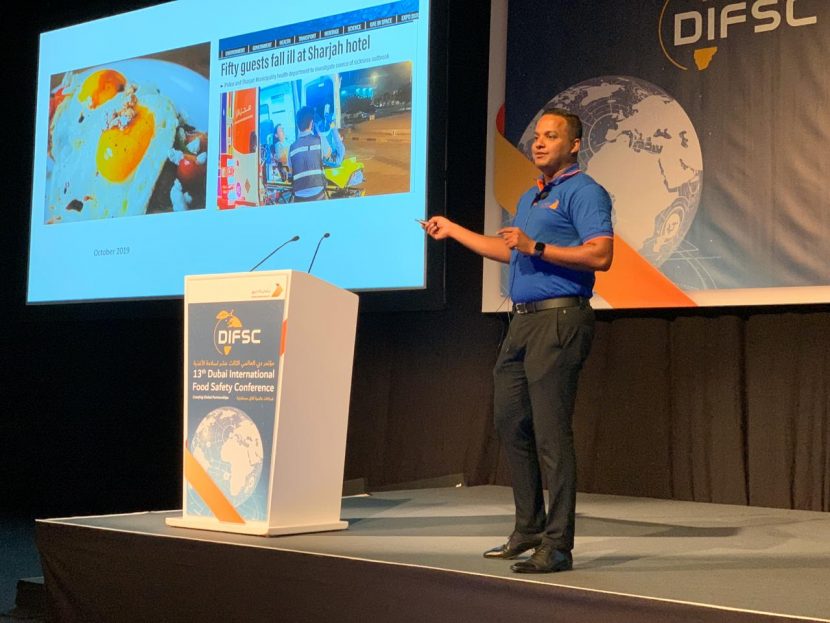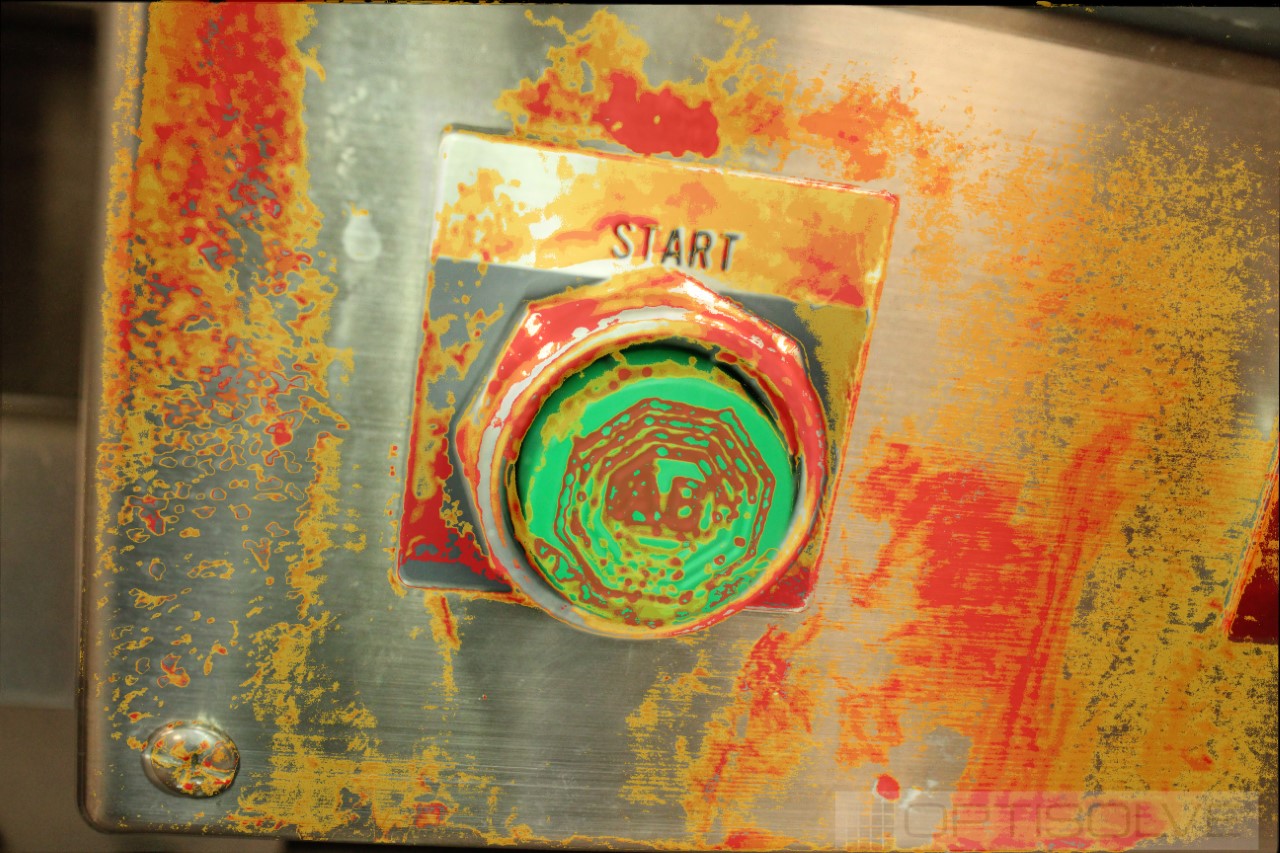Dubai Leadership: The Digitization of Food Safety Management
By John G. Keogh
“Food safety management will go completely digital by the end of 2020” according to Jehaina Al Ali from the Dubai Municipality. I met up with Jehaina and her colleague Bobby Krishna recently at the Dubai Food Safety Conference to discuss their plans.
The Foodwatch platform was created to enable the modernization and digitization of all aspects of the municipality’s food safety management. The platform facilitates data exchange between all stakeholders in the public and private sectors. It stores, manages and distributes food safety information and validated nutrition information. But Foodwatch doesn’t stop there according to Jehaina and Bobby. The platform will include modern technologies such as blockchain, smart contracts, artificial intelligence (AI), big data analytics and full end-to-end traceability and recall management. They were keen to point out that the platform will cater to consumers wanting to find nutritional information, quality ratings for restaurants or menus with special dietary preferences such as vegan, halal or allergen data.
there were no case studies anywhere in the world that met our unique vision
Foodwatch provides valuable data that can be used by the municipality for better public health decision making. The monitoring data that comes via Foodwatch allows the Food Safety department to view which foods have been checked by the food business operators, what pests are common and where they were located. Foodservice operators (e.g. restaurants, hotels, canteens) can access food safety training and log and manage employees progress. They have full access to essential training on preventative controls such as pest management, safe food handling, food handler health awareness and more. The platform is designed to enable the tracking and monitoring of food vehicles used for transportation and delivery and quickly identifies vehicles with temperature control issues. Another unique feature is supplier management, where, Jehaina notes, all relevant paperwork and certifications are verified and digitized on the platform and available for buyers to view. The team believes that this feature adds significant integrity to the food safety management system and may reduce the need for some of the supplier audits, saving time and costs for all stakeholders.
“We have come a long way since we started with a very simple inspection and compliance tool in 2014. The GFSI conference in Berlin in 2016 was where we learned about the importance of Big Data concepts and Agile technology development” according to Bobby. Trying to scope the functionality and then define the costs to develop and maintain the new platform and ensure its sustainability was a big challenge. The team fast realized that a subscription-based model was key to the democratization of the platform and to its broad adoption. Today, more than 24,000 firms utilize Foodwatch, and it costs each firm 1500 AED per year, which is about $400 USD, in 2020 it will be 1,000 AED per year or the equivalent to $270.
Dubai announced its open data and blockchain policy in 2016, which accelerated their plans to develop Foodwatch. After attending several technology conferences and learning about blockchain, AI, IoT, big data analytics and other concepts, Bobby and Jehaina knew they had to build a team; “we were learning on the job, learning from others but there were no case studies anywhere in the world that met our unique vision”, Jehaina noted. A meaningful insight from the project was the importance of having a committed development team; “originally we had multiple developers with no context of the application. In the Foodwatch project we agreed with our solution provider to engage with a dedicated development team. We brought them to Dubai to learn about our food safety programs and this was key to the project success” according to Bobby. Today, powerful algorithms can be used to predict food safety outbreaks, providing an early warning to the municipality.
With the digitization of their entire food safety management system, Dubai has taken a global lead in protecting the health and wellbeing of residents and the many millions of visitors. More importantly, Dubai has taken purposeful steps in advancing towards an integrated and digitized approach to the fast-evolving concept of Society 5.0.
About the Author:
John G. Keogh is a strategist providing confidential research and advisory on Strategy, Innovation, Technology, Operations and Policy. He is a recognized global expert in supply chain integrity and a frequent keynote speaker, panelist and regularly appears on TV and Radio. John holds a PG Diploma in Management, an MBA in Management and Strategy, a Master’s of Science in Business and Management Research and is a doctoral researcher on food chain transparency and trust at Henley Business School, University of Reading.

-
 FeaturedRisk management
The Cost of a Breach: What a Cyberattack Could Mean for Food Safety Recalls
FeaturedRisk management
The Cost of a Breach: What a Cyberattack Could Mean for Food Safety Recalls
-
 FeaturedRisk management
Securing the Food Chain: How ISO/IEC 27001 Strengthens Cybersecurity
FeaturedRisk management
Securing the Food Chain: How ISO/IEC 27001 Strengthens Cybersecurity
-
 FeaturedRisk management
Revolutionizing Food Safety Training: Breaking Out of the “Check-the-Box” Mentality
FeaturedRisk management
Revolutionizing Food Safety Training: Breaking Out of the “Check-the-Box” Mentality
-
 GFSI Standards
GFSI 2025: Building Trust, Tech-Forward Solutions, and Global Unity in Food Safety
GFSI Standards
GFSI 2025: Building Trust, Tech-Forward Solutions, and Global Unity in Food Safety
-
 FeaturedFood Safety
Integrated Pest Management: Strategies to Protect Your Brand’s Reputation
FeaturedFood Safety
Integrated Pest Management: Strategies to Protect Your Brand’s Reputation
-
 FeaturedFood Safety Culture & Training
No Open Door Policy: Challenges That Impact Pest Control in Food Processing Plants
FeaturedFood Safety Culture & Training
No Open Door Policy: Challenges That Impact Pest Control in Food Processing Plants




